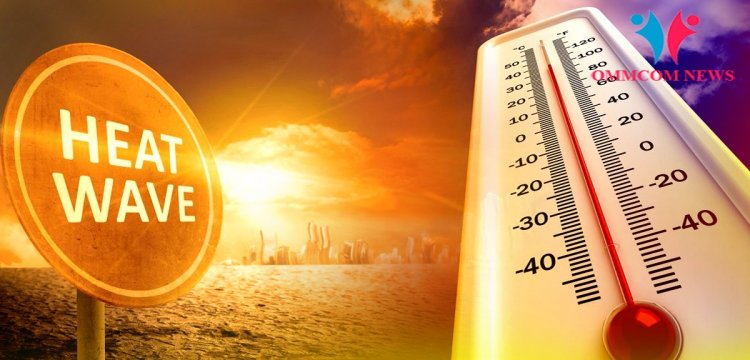
As most of the state experiences temperature above 40 Degree Celsius, IMD has warned of heatwaves in several parts of the country including Maharashtra, Rajasthan, Madhya Pradesh, Gujarat along with the capital.
Delhi’s Mungeshpur recorded temperature was 49.2 Degree Celsius while Najafgarh heated at 49.1 Degree Celsius. Safdarjung marks the capital’s overall temperature which stood up at 45.6 Degree Celsius, 5 Degrees above the normal on Monday.
Reason for delayed rain:
Western disturbances that had passed through Northwest India didn’t have much effect on Delhi because of their low intensity and depth. This leads to hardly any rainy days in Delhi in the past few weeks. Last week, a cloud cover was observed but that didn’t bring any rain but only humidity, according to the statement by K Sathi Devi, a scientist at IMD.
What is a Heatwave?
According to the Ministry of Health, when the actual maximum temperature crosses 45 Degree Celsius, heatwave alertness is declared for that region. When the temperature crosses 47 Degree Celsius, a severe heatwave is declared.
For plains, temperatures above 40 Degree Celsius, for coastal areas, temperatures above 37 Degree Celsius, and for hilly regions, temperatures above 30 Degree Celsius are set as the criteria to declare heatwaves.
Harmful effects of Heatwaves on us:
Staying outside during the peak hours from 10 am to 6 pm, could heat up the body’s normal temperature and lead to heatstroke. When one stays outside for a longer duration during the daytime, they feel exhausted and lethargic. It could lead to rashes, fatigue, and fainting. In severe cases, a person suffering from heatstroke could even face organ failures and neurological dysfunctions.
Children below the age of 5 and adults above the age of 65 are the most vulnerable group to be affected by heat waves. They need to be extremely careful about their health and should avoid going outside.
However, young adults aren’t safe either. They too need to keep themselves hydrated throughout the day and should avoid going outside as much as possible. Work from home is on the go!
Persons with comorbidities should also extensively take care of themselves. Past history of cardiac arrest, diabetes, and thyroid could let one experience more heat exposure than a healthy human being.
What can you do to protect yourself and your loved ones:
- Stay inside as much as possible. If feeling unwell, shift to a cooler place. Covering your head with caps and cotton cloth is advised if going out is important for you.
- Keep yourself hydrated. Drink about 2-3 litres of water a day. Although, water intake varies from person to person. Consult a nearby physician to know the exact amount of water you can have in a day.
- Avoid wearing dark-colored, synthetic/nylon, and tight-fitting clothes.
- Should opt for fruits, salads, and drinks like lemonade, juices, and ORS frequently.
- Bathing twice, sometimes thrice a day will not harm and helps to maintain a normal body temperature.
- Avoid consuming hot drinks like tea and coffee.
- Avoid doing extensive physical activities like exercise during peak hours.













